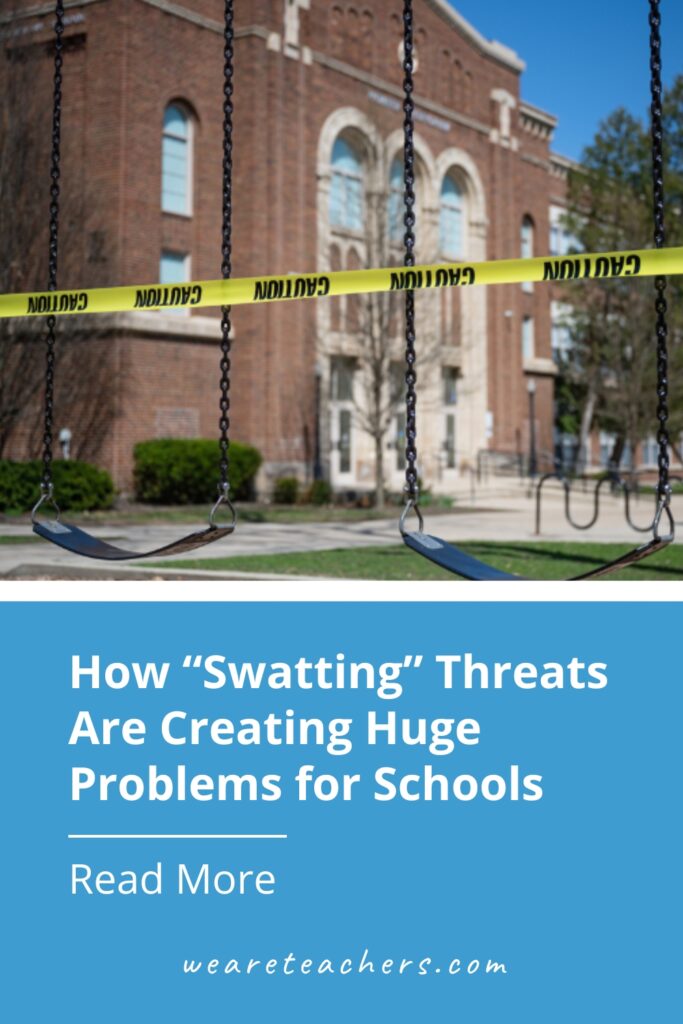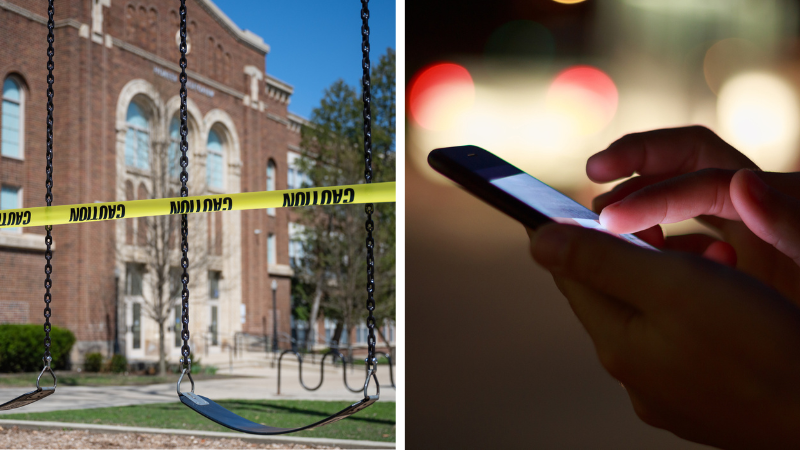If you work in a school or have school-age children, you’ve probably already had to deal with swatting—fake threats to schools made by callers with malicious intent.
Swatting isn’t new. It originally started as a way to get law enforcement and SWAT teams to raid the home of an individual—usually gamers or activists—and traumatize them. But now, communities are seeing a huge uptick in swatting calls targeting schools.
Unlike bomb threats in the 1990s where the callers pretended to have placed the bomb themselves, swatting callers try to sound like a victim of school violence, requesting help from authorities and reporting terrifying (fake) first-person accounts.
Who is swatting schools?
After tracing many calls to outside the country, the initial thought was schools were being swatted as a foreign terrorist tactic. However, it soon became clear that many of the calls are directed by American teenagers hiring amateur foreign actors.
Many communities are noticing groups or clusters of schools in the same area receiving threats at the same time. James Turgal, former executive assistant director for the FBI Information and Technology branch, told The 74 Million, “If they’re hitting 12 or 15 schools in a particular jurisdiction or a particular state all at once, that is absolutely a coordinated attack.”
Why are they doing this?
Swatting isn’t yet a crime in most places. With so few swatters actually caught, it’s hard to nail down their main motivations. But here are our best guesses based on the effect swat calls have:
- To disrupt school activities. Swatting and the related lockdowns cause significant delays, cancellations, and other roadblocks. In my area alone, there has been a huge spike in threats in the last week or so, which happens to correlate with final exams.
- To cause havoc. Teenagers have always loved causing mischief. With underdeveloped frontal lobes, it’s possible to confuse harmless mischief with serious trauma, life-threatening danger, and wasted resources.
- For notoriety. Media coverage of the Nashville and Uvalde shootings may prove to be a strong motivator for attention.
What problems do swats cause?
Other than being a major disruption to school activities and transportation, swatting also has these effects on individuals, schools, and communities:
- Causes significant emotional distress and trauma. Any teacher who has sat in a lockdown they know isn’t a drill will tell you how terrifying it is to wonder realistically if these are your last moments on earth. Similarly, students, parents, and first responders are all put through grueling anxiety and panic with every swat call. It’s not a stretch to think that your school is about to be the next one in a long list of tragic school shootings.
- Wastes resources and taxpayer money. Swatting incidents can cost a community between thousands and hundreds of thousands of dollars.
- Puts people in real danger. Swatting puts the targets, responding officers, and other community members in harm’s way and sometimes results in their deaths. In 2017, Wichita police shot and killed a man while responding to a swat and paid $5 million to settle a lawsuit. Plus, people who actually need emergency services experience potentially life-threatening delays when community resources are responding to swats instead.
- Criminals could use swats to intentionally divert law enforcement. What better time to commit a crime than when you know the whole town’s emergency services are responding to a “school shooting” that you phoned in?
What can we do to stop fake school threats?
Right now it’s pretty much impossible to stop perpetrators. Callers use caller ID spoofing to disguise their number and AI to disguise their voices. Swat-for-hire ads are openly posted on Discord, the instant messaging platform with 150 million active users per month.
Because this problem doesn’t seem to be going away anytime soon, lawmakers and law enforcement are focusing their attention on prevention and response. They’re pushing to get more FBI agents to trace hoax callers, create legislation with harsh punishments for swatters, and hold phone carriers accountable for their verification process.
Unlike the cost of lives in real school shootings, maybe the money wasted by swat calls means we’ll actually see swift government action on this.
How has your community been affected by swatters? Let us know in the comments.
Plus, for more articles like this, be sure to subscribe to our newsletters.


